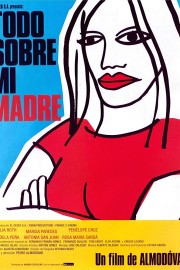All About My Mother
Is there another filmmaker more in love with women than Pedro Almodovar? The physical beauty of women, the emotional complexity of women, the intellectual strength of women, and the way women can drive others, and themselves, kind of crazy. I certainly do not think there is a male filmmaker more enthralled with women than Almodovar, and it comes through in every film. He respects women, and he’s moved by their strength and compassion. This is best exemplified in his 1999 Oscar winner, “All About My Mother,” which he dedicates to women en masse. It’s a thoughtful and lovely ode to them.
One of the things that I love about Almodovar’s films is that he uses melodrama, and the precise way he uses it to reveal something genuine about his character’s emotions. The way he shifts tones and genres within films are a masterclass in storytelling, and while, admittedly, it’s not going to work for everyone, once you submit to a film like “Volver” or “Live Flesh” or “Pain and Glory,” I cannot imagine going back to not watching him again. He has a distinct voice that I cannot imagine living without.
Prior to “Pain and Glory,” I think “All About My Mother” was probably his most personal film. It starts with a mother and son in Madrid. It is the son’s 17th birthday, and Esteban (Eloy Azorín) is turning into quite a writer. He is also starting to want to meet his father, although Manuela (Cecilia Roth), a nurse, is hesitant to reveal that to him; she ran away from the father before Esteban was born. They go to a production of A Streetcar Named Desire for Esteban’s birthday that evening, and he is so taken by the lead performance he wants to get the actress’s autograph after the show. Manuela is fine with it, but when he’s trying to get them, he gets hit by a car, and dies. Manuela is devastated, and she returns to Barcelona to go tell the father, and reconnects with a sex worker friend (Agardo, Antonia San Juan), meets a nun (Rosa, Penelope Cruz), and even befriends Huma Rojo (Marisa Paredes), the actress Esteban admired, and her lover, Nina (Candela Peña). The camaraderie and love she feels with all of these women help center her, even after complications ensue.
There is not a character in this film that we don’t feel tremendous empathy for- even when they are salty like Nina, a drug user, or someone we should hate based on what we know of them like Lola (Toni Cantó), whom is the source of pain and misery for a handful of characters in this film. This might be the most heartfelt film he’s ever made, and it is one where his sense of style, both visually and tonally, is fully in focus. The art direction is a bit flamboyant, but it matches the way the story sometimes plays out. This almost plays out as a soap opera, with how twisty the narrative is, and how wickedly sharp the dialogue can be. That’s one of my favorite parts of Almodovar’s films- he can pitch the drama to the point of absurdity, but it lands all of the emotional beats he wants to land when it comes to love, loss, surviving, and sharing your life with people who mean something to you. This is one of his least audacious films, but it’s an exquisite piece of storytelling with humor and heart. It’s a nice gateway for one of the wildest filmmakers in world cinema.










